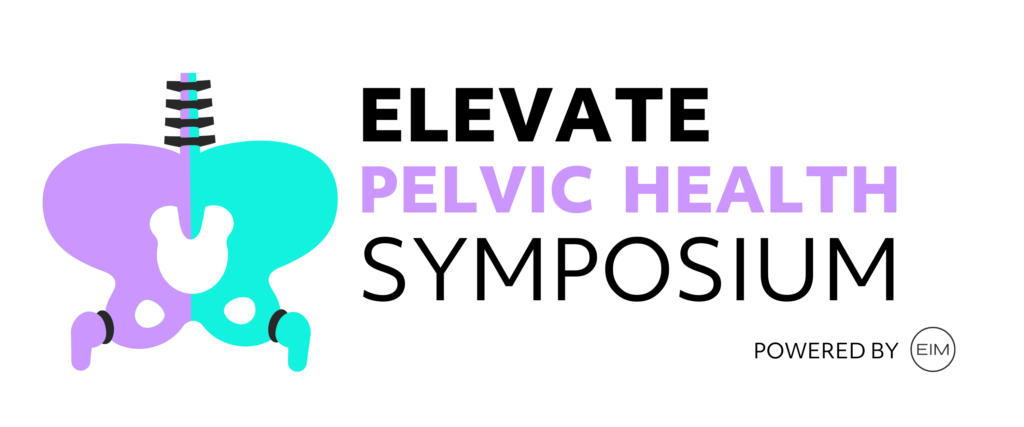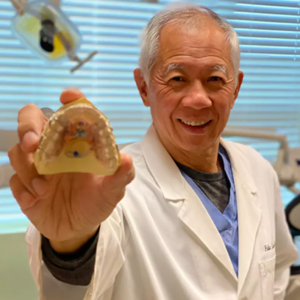
Event Details
-
Faculty: Jennifer Stone
-
Faculty: Tiffany Marcum
Session Details:
Sexual dysfunction in the geriatric population is often underrecognized and undertreated, despite its significant impact on quality of life and overall well-being. This session will explore how to effectively address sexual health concerns in older adults, with attention to clinical conditions and sociocultural factors that may contribute to dysfunction. Attendees will learn how to identify relevant diagnoses and apply appropriate treatment strategies tailored to this population. Emphasis will also be placed on breaking down stigma and improving provider confidence in discussing sexual health with older patients.
-
Faculty: Felix Liao
Session Details:
Is the jaw bone connected to the hip bone? Yes, for sure! Can Impaired Mouth impact pelvic health? You bet! This lecture connects the oral-facial with the pelvic structures.
Impaired Mouth Syndrome is a vast set of medical, dental, and mood symptoms stemming from underdeveloped jaws. It is missing in nearly all healthcare professionals’ radar. Join Dr. Felix Liao, author, dentist-turned-Airway Mouth Doctor, and co-founder of HealthCare2.0, for an eye-opening overview.
-
Faculty: Terri Robertson Elder
Session Details:
Breast cancer rehabilitation often focuses on oncologic care and upper body recovery, yet pelvic therapists are uniquely positioned to address the full continuum of survivorship. This session explores how pelvic health providers can confidently integrate breast cancer rehabilitation principles into their scope of practice—supporting not just pelvic and sexual health, but also addressing upper extremity impairments, post-operative healing, lymphedema risk, and scar tissue mobility. Participants will learn to bridge gaps in care by applying systems-based reasoning, current evidence, and collaborative strategies to improve outcomes for breast cancer survivors experiencing a wide range of post-treatment challenges.
-
Faculty: Anna Hammond
Session Details:
Due to adaptations from pregnancy, it is common for postpartum women to experience reduced diaphragmatic movement, rounded shoulder, limited thoracic rotation, and forward head posture. In this presentation, participants will learn the musculoskeletal and systemic effects of these adaptations and how they can affect core function. Participants will learn the why and how to implement an upper body strength training program to improve posture, thoracic rotation, and facilitate dynamic functional core strength to decrease a diastasis recti.
-
-
Faculty: Lynn Schulte
Session Details:
Many postpartum individuals experience unresolved musculoskeletal dysfunctions due to the mechanical demands of birth and pregnancy. This session will explore how different birthing positions influence pelvic alignment and function, common postnatal pelvic patterns, and how to assess and address changes in the diaphragm, ribcage, and abdominal wall. Attendees will gain practical strategies for early postpartum care, including evidence-based interventions for diastasis recti. Emphasis will be placed on integrating anatomical, biomechanical, and clinical perspectives to optimize recovery and restore function.
-
Faculty: Nick Rainey
Session Details:
The jaw and the pelvis may seem worlds apart, but emerging research reveals surprising links between temporomandibular disorders (TMD) and pelvic floor dysfunction. This session will equip clinicians with tools to quickly screen for TMD in patients presenting with pelvic health complaints and explain the neurophysiological and fascial connections between these regions. Attendees will gain simple, effective strategies to educate patients and implement foundational TMD interventions within their practice. Join us to explore how treating the jaw may just be the missing link in pelvic floor care.
-
Faculty: Sandi Gallagher
Session Details:
Gender affirming genital surgeries have effects on multiple systems. Each of which can influence recovery. Understanding the surgeries, surgeon protocols, and healing mechanisms can help rehab providers improve outcomes and return to function in people seeking these surgeries.
-
Faculty: Jo Milios
Session Details:
Join Jo Milios for an in-depth session on The Nuts & Bolts of Male Sexual Health Rehabilitation, designed to equip clinicians with essential knowledge and skills in this often-overlooked area of practice. This session will review normal male sexual anatomy and physiology, explore common sexual health concerns such as erectile dysfunction, and introduce evidence-based rehabilitation strategies. Attendees will gain practical insights into pelvic floor training and clinical protocols that support optimal sexual function. Ideal for professionals seeking to enhance their competence and confidence in men’s health rehabilitation.
-
Faculty: Kristin Smith
Session Details:
This session dives into the often-overlooked relationship between hip mechanics and pelvic floor function. Rehab professionals will explore how hip mobility, strength, and performance can influence pelvic floor performance and vice versa. Using evidence-based strategies and clinical insights, this talk will equip attendees with tools to assess and treat the hip-pelvic floor connection more effectively. Get ready to rethink your hip assessments—because it’s all connected!
-
Faculty: Jenna Kantor
Session Details:
This evidence-based online course is designed for physical therapists and physical therapist assistants who treat performing artists, particularly dancers. The course focuses on how pelvic floor dysfunction—manifesting as urinary leakage, heaviness, pressure, or symptoms of prolapse—can impair performance during jumps and turns. Special attention is given to hypermobility and the unique presentation of pelvic floor dysfunction in individuals without a history of childbirth. Participants will explore the clinical reasoning and interventions needed to address these symptoms, often exacerbated by the physical demands of dance. Learn how to identify red flags, adapt movement strategies, and create dancer-specific rehabilitation programs that restore confidence and control.
ALL TIMES LISTED ARE IN CENTRAL STANDARD TIME (CST)
Attendees will have access to recorded sessions for up to 6 months if they are unable to attend part or all of the live event.
The conference provides up to 15 contact hours
Presenters
February 28th, 2026 | Register Now!
Pricing Information | $250*
(*Early Bird price lasts until January 28th!)
All registrants will have access to both live sessions and recordings for 6-months.
If you have questions or have trouble registering, please contact us here.










